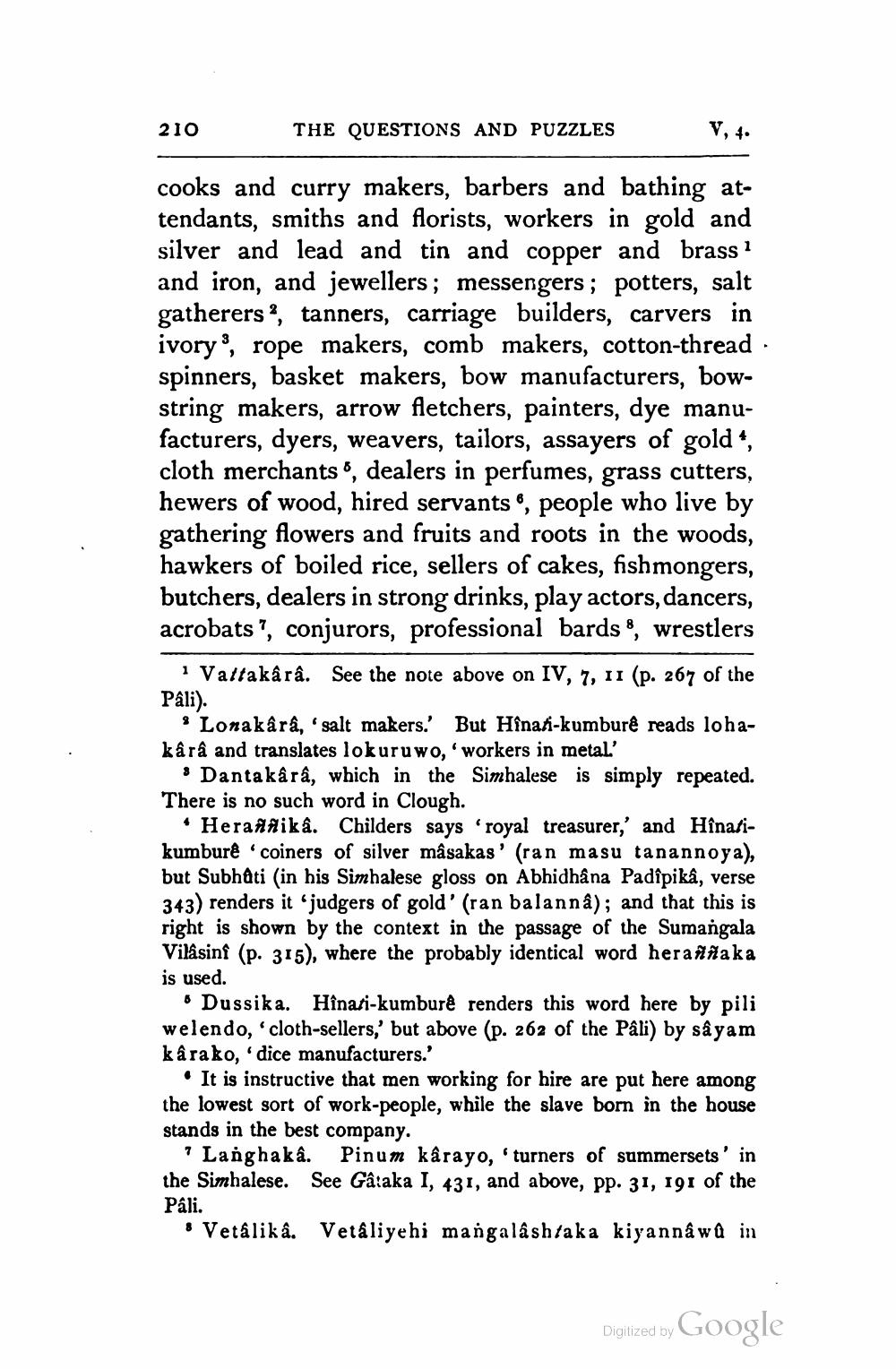________________
210
THE QUESTIONS AND PUZZLES
cooks and curry makers, barbers and bathing attendants, smiths and florists, workers in gold and silver and lead and tin and copper and brass ? and iron, and jewellers; messengers; potters, salt gatherers?, tanners, carriage builders, carvers in ivory?, rope makers, comb makers, cotton-thread - spinners, basket makers, bow manufacturers, bowstring makers, arrow fletchers, painters, dye manufacturers, dyers, weavers, tailors, assayers of gold", cloth merchants', dealers in perfumes, grass cutters, hewers of wood, hired servants e, people who live by gathering flowers and fruits and roots in the woods, hawkers of boiled rice, sellers of cakes, fishmongers, butchers, dealers in strong drinks, play actors, dancers, acrobats?, conjurors, professional bards, wrestlers
1 Vattakârâ. See the note above on IV, 7, 11 (p. 267 of the Pâli).
: Lonakârâ, salt makers.' But Hinat-kumburê reads lohakârâ and translates lokuruwo, workers in metal'
• Dantakârâ, which in the Simhalese is simply repeated. There is no such word in Clough.
• Herannikâ. Childers says "royal treasurer,' and Hînatikumburè coiners of silver mâsakas' (ran masu tanannoya), but Subhâti (in his Simhalese gloss on Abhidhâna Padîpika, verse 343) renders it judgers of gold' (ran balanna); and that this is right is shown by the context in the passage of the Sumangala Vilásinf (p. 315), where the probably identical word heranwaka is used.
o Dussika. Hînati-kumburê renders this word here by pili welendo, cloth-sellers,' but above (p. 262 of the Pâli) by sayam karako, dice manufacturers.
• It is instructive that men working for hire are put here among the lowest sort of work-people, while the slave born in the house stands in the best company.
? Langhaka. Pinum karayo, turners of summersets' in the Simhalese. See Gâtaka I, 431, and above, pp. 31, 191 of the Páli.
• Vetálika. Vetåliyehi mangala shtaka kiyannâwâ in
Digitized by Google




